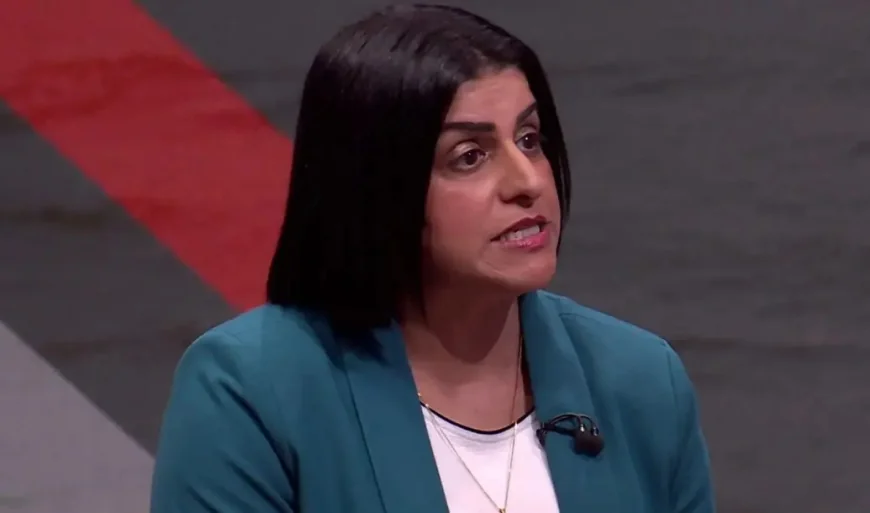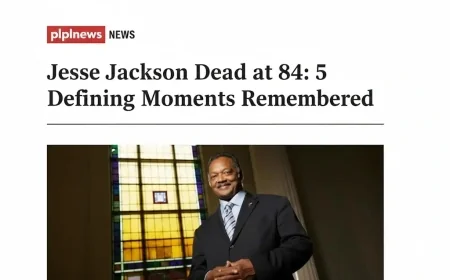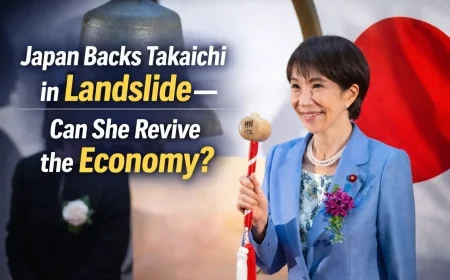The Home Secretary has stated that tackling illegal immigration into the UK is a "moral mission" as she prepares to unveil major plans for sweeping changes to asylum policy.
New measures to be announced by Shabana Mahmood on Monday will require asylum seekers to wait 20 years before applying for permanent settlement.
The plans will also include regular reviews of asylum seekers' refugee status, and those whose home countries are deemed safe will be asked to return.
Mahmood told "Sunday with Laura Kuenssberg" that she believes illegal immigration is "breaking the country apart."
Shadow Home Secretary Chris Philp said the Conservative Party would deport illegal immigrants "within a week," while Liberal Democrat leader Sir Ed Davey called for granting refugees the right to work.
These changes aim to make Britain less attractive to illegal immigrants, reducing the number of small boat arrivals and asylum claims.
Many of the specific details and practicalities of these measures are not yet clear, and Mahmood will present them on Monday.
Mahmood further stated that her plans also focus on addressing the "unfair" conditions that result in some refugees receiving better facilities than British citizens.
She said: "I know that illegal migration is causing huge divisions in our own country, and I believe that if we are to maintain public support for the asylum system, we must take action."
Refugee status currently lasts for five years, after which people can apply for indefinite stay or permanent residence. Mahmood wants to extend this to 20 years.
Under the new measures, refugee status will be reviewed after two and a half years, and will be reviewed regularly thereafter.
Mahmood told refugees that those who take "safe and legal routes," find work, and contribute to society can apply for permanent settlement earlier, although he did not provide any specific details.
This policy is based on Denmark, where the government led by the center-left Social Democrats has been governing under one of Europe's most stringent asylum and immigration systems.
In Denmark, refugees are granted temporary residence permits, usually for two years, and in effect, they must reapply for asylum when they expire.
However, Labour MPs, including Clive Lewis, have already opposed Mahmood's strict stance. Lewis told the BBC that the Danish system echoes "far-right ideology" and warned that left-wing Labour voters could turn to the Green Party in response.
Mahmood dismissed this, saying: "I myself am a child of immigrants; my parents came to this country legally in the late 60s and 70s. As a British person, immigration is deeply ingrained in my experience, and that of thousands of my constituents."
"It's a moral mission for me, because I can see that illegal immigration is tearing our country apart, it's dividing communities."
The Home Secretary has previously been pressured to call Britain a "golden ticket" for refugees, despite Britain being "less generous" with aid than France, Germany, and Denmark, and was asked why she wanted to cancel aid for refugees.
She said criminal gangs were selling packages to refugees in Britain, telling them they would receive free hotels and food, and "we know we have to deal with these tempting factors."
She said the current system had "no hope" that the 10% of refugees with the right to work could actually support themselves. They will find it, and there's no expectation that "if you break the law of this country, you lose your housing."
"This actually puts those people in a better position than the majority of British citizens living in social housing in this country," he said, adding: "I think that's a fundamental principle of fairness."
However, Philip dismissed Mahmood's plans as "gimmicks" that merely "tweaked the edges" of the problem.
"I don't object to it in principle, but it won't work,"
"I would go further and say that if someone comes here illegally, they won't be able to claim asylum at all and should be deported within a week."
Davey said his party has "some concerns" about the government's proposed changes to asylum in Britain, but they will "consider the details."
He argued that asylum seekers should be given the right to work, because then they "[Government] support wouldn't be needed," and it would be "better for the economy and for asylum seekers."
Solomon, CEO of the Enver Refugee Council, said that instead of deterring migrants, a 20-year deadline would "leave people in uncertainty and stressful anxiety for many years."

 Like
0
Like
0
 Dislike
0
Dislike
0
 Love
0
Love
0
 Funny
0
Funny
0
 Angry
0
Angry
0
 Sad
0
Sad
0
 Wow
0
Wow
0











































